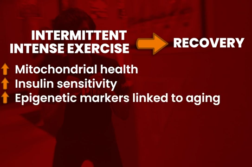ORLANDO, Fla. (Ivanhoe Newswire) — To lower your cholesterol naturally, Harvard Medical School says to cut out certain fats, back down on sugar and grain intake, and increase your fruit and veggie intake. But when lifestyle changes aren’t enough, should you go on statins?
Its common knowledge that having high cholesterol can put you at risk.
“Our guidelines have suggested that lower and lower levels of the bad cholesterol LDL are associated with a reduction in the risk of death, heart attack and stroke,” stated Steven Nissen, MD, Cleveland Clinic.
The CDC says 102 million Americans have high cholesterol.
“Now there are tens of millions of patients that take these cholesterol lowering drugs, the statins,” Dr. Nissen continued.
Mayo Clinic says there’s still some debate surrounding these drugs. Common side effects include nausea, headaches, and even more serious effects like liver damage, increased blood sugar, type two diabetes, and memory loss. Mayo also lists those who may be at a greater risk for side effects including women and people over 80.
But the FDA says that the benefit of statins in reducing heart attacks and strokes should outweigh the unlikely risks. Before making a decision, talk to your doctor about family history, c-reactive protein levels, and any history of gestational diabetes.
If you’re currently on statins, steer clear of grapefruit juice! The FDA warns that grapefruit juice can interfere with certain statins, preventing the medication from breaking down properly.
Contributors to this news report include: Hayley Hudson, Field Producer; Roque Correa, Editor.
Free weekly e-mail on Medical Breakthroughs from Ivanhoe. To sign up: http://www.ivanhoe.com/ftk
STATINS: PROS AND CONS
REPORT #2661
BACKGROUND: Blood cholesterol is a waxy, fat-like substance made by your liver. It is essential for good health and our body needs it to perform important jobs like making hormones and digesting fatty foods. Your body makes all the blood cholesterol it needs and that’s why experts recommend people eat as little dietary cholesterol as possible while on a healthy eating plan. People with high cholesterol have about twice the risk of heart disease as people with lower levels. Seventy-one million American adults (33.5%) have high low-density lipoprotein (LDL), or “bad,” cholesterol and less than half of these adults get treatment. Lowering your cholesterol can reduce your risk of having a heart attack, needing heart bypass surgery or angioplasty, and dying of heart disease. High cholesterol has no symptoms, therefore many people don’t know their cholesterol is too high. You can get a simple blood test to check your levels at the doctor’s office. It is recommended that adults get their cholesterol checked every five years.
(Source: https://www.cdc.gov/cholesterol/about.htm and https://www.cdc.gov/dhdsp/data_statistics/fact_sheets/fs_cholesterol.htm)
CURRENT TREATMENTS: Lifestyle changes such as exercising and eating a healthy diet are the first line of defense against high cholesterol. But, if your cholesterol levels remain high, your doctor might recommend medication. Statins block a substance your liver needs to make cholesterol. This causes your liver to remove cholesterol from your blood. Statins can also help your body reabsorb cholesterol from built-up deposits on your artery walls, potentially reversing coronary artery disease. Your liver uses cholesterol to make bile acids, a substance needed for digestion. Certain medications lower cholesterol indirectly by binding to this bile acid. The drug ezetimibe (Zetia) helps reduce blood cholesterol by limiting the absorption of dietary cholesterol. Ezetimibe can be used along with a statin drug. And, a newer class of drugs, known as PCSK9 inhibitors, can help the liver absorb more LDL cholesterol which lowers the amount of cholesterol circulating in your blood. The choice of medication or combination of medications depends on various factors, including your personal risk factors, your age, your health and possible drug side effects.
NEW STUDY IN CHOLESTEROL TREATMENT: A breakthrough discovery at Houston Methodist Research Institute made by medical biochemist Henry Pownall, Ph.D., and his team, reveals a new pathway in the cholesterol-elimination chain that will be key to developing new drugs to lower cholesterol. “The model people have been using for 40 years presumed that cholesterol was transported from the arteries with other lipids and proteins and entered a particle that stayed in the blood for several days before being cleared by the liver for disposal,” Pownall said. “What we discovered in the process was something different. The cholesterol skips all these steps and goes directly from this early particle to the liver in two minutes. This is a thousand times faster than what was formerly suspected.” While most studies look at HDL cholesterol in its mature form found in blood, Pownall and his colleagues studied cholesterol in an early form of HDL produced by cells. Pownall stresses that physicians and researchers need to better understand how the “good” HDL cholesterol contributes to cardiovascular disease and how to raise it in a way that protects the heart, because some patients with very high HDL numbers, which were always thought to be beneficial, are actually at risk.
(Source: https://www.sciencedaily.com/releases/2017/10/171027090132.htm)
* For More Information, Contact:
Andrea Pacetti



